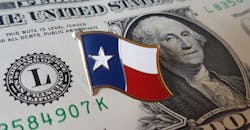I believe in giving credit where credit is due, whether it is to individuals, companies or governmental policies. In June, Apple Will Move Production of Mac Pro to China Amid Trade War described how Apple had announced it would be closing down its Mac Pro assembly facility in Austin, Texas, and start assembling those units in China. Most Mac Pros are sold in the United States.
Thankfully, in September, Apple reversed that decision after it received a tariff waiver from the U.S. government on 10 key components imported from China. This is great news—especially for the employees working in Austin—and I’d hope there are many more similar announcements from other companies coming down the pike. It’s too bad that it took some level of coercion by the federal government to get Apple to do the right thing.
In the short-term, the company’s decision may mean the Mac Pro’s cost of goods sold will be higher than it would have been if assembled in China. This, of course, would incrementally affect Apple’s profitability, their stock price and even—heaven forbid—executive-level bonuses. So it is true that that once again there are people taking a bullet for the overall good of our country’s future economic wellbeing. They are to be applauded.
Personally, I think a business case can be established that Apple actually benefits more financially by keeping manufacturing in their largest market due to the increased order fulfillment flexibility this gives them. On the other hand, gaining the full benefit of this flexibility requires lean supply chain performance which, to develop, would require Apple to shorten the length of their supply chain “true” lead-times. This would most easily be accomplished, of course, by buying parts and components for the Mac Pro in the U.S.
Along these lines, a Sept. 30 article reports that Apple’s application for tariff relief on five other Chinese-sourced Mac Pro parts was denied. Hmmm. It is true that this will probably spur Apple to either find and/or develop sources for those parts in this country. That would be a “best case” outcome. On the other hand, if suppliers continue to ignore the financial benefits available through manufacturing in their primary markets, it may push Apple to source in some other overseas low-wage country in pursuit of the lowest piece-price. A country, I might add, where Apple probably sells very few, if any, Mac Pros.
With that waiver denial, the administration seems to be taking a pretty harsh stand on a request from a U.S.-based corporation that has just made a major concession that will save U.S. jobs. I’m wondering if a more carrot-and-stick approach by the administration might prove more effective in getting other U.S.-based manufacturers to make similar concessions. In this case, this would have meant Apple getting a tariff exemption on those parts. I am, admittedly, a strong proponent of finding the middle ground in negotiations, the exemption being with parties such as China that refuse to operate within the established—and fair—parameters of international trade.
In view of the above commentary, I need to make it clear that I believe there are legitimate cases where exemptions are necessary and applications for them should be evaluated on a timely basis. Why? Consider the case of Mid-Continental Nail. Not enough of the steel wire needed to manufacture their products—their raw material—is available from non-Chinese forces. Because of this, the company requested a tariff exemption on imported Chinese steel wire last year. It was eventually granted, however the Commerce Department took over 10 months to process that company’s application and grant the exemption. In the mean-time Mid-Continental Nail sales fell 60%, their employment fell from 500 to 300, and the company lost money.
The U.S. Versus the World
I give our tariffs on Chinese imports credit for helping to level the playing field with a country that doesn’t operate according to generally accepted trade principles. That doesn’t mean that I think starting a trade war with a country is the only strategy available to address perceived trade imbalances.
I’ve previously posited that I don’t believe there is any country on earth—including the United States—that doesn’t in some way act to protect “pet” industries. In my mind that’s OK, and acceptance of this represents a kind of middle ground in a trade relationship. For largely this reason, I don’t think it is healthy for any country to feel it should have its own way on every trade issue. To that point, I hope that tariffs and trade wars don’t become the administration’s Standard Operating Procedure in dealing with all countries, especially historic allies whom we are likely to want to continue backing us on international issues such as Iran.
The administration, however, has laid down the threat of tariffs on the import of European automobiles, as per the September 20 article Europe Renews Pledge to Retaliate Against Any Trump Car Tariffs. The Trump administration‘s justification for these tariffs would be that the import of European cars poses a “security threat” to the United States. Hmm.
As I’ve previously written, free trade is working in regard to European and Japanese car manufacturers. As opposed to what is happening in China, companies in those countries don’t get financial support from their government—at least any more than we give to our automobile manufacturers (remember the GM and Chrysler bailouts)? So essentially, what I see is that the administration is basing its action on the belief that U.S. auto manufacturers can’t compete with the foreign luxury cars being imported into this country.
Not being able to compete with foreign companies when the playing field is essentially level is not a reason to initiate either tariffs or a trade war. I hope that is not what the current U.S. administration is planning to do, since it does not align with free trade principles and will likely result in unexpected and unintended negative economic consequences.
Finally, in a September 25 article, WTO: US Can Sanction nearly $8 Billion of EU Goods Over Airbus Aid, the Word Trade Organization says that the European Union supplied Airbus with illegal governmental support, legitimating $8 Billion on U.S. tariffs of imports from them. It is a good thing the WTO penalizes countries in instances where blatant governmental actions to tilt an otherwise level playing field exist, and this is one of them. On the other hand, the European Union is pursuing a similar case related to purported U.S. aid to Boeing, and according to industry experts, it is expected that the WTO judgement may be in the EU’s favor.
Three points, here. First, based on their position that the U.S. also illegally supports their aircraft industry, the European Union has said that any U.S. tariffs related to the recent WTO judgement will be offset with tariffs on goods imported from our country. Second, over the last couple of years, our government has gone to great lengths to disparage the WTO. With this victory, perhaps we can agree that the WTO is of value and can produce unbiased judgements. Thirdly, the worldwide aircraft industry sources parts from many common suppliers, many in the EU. In my mind it is a good thing that the administration has granted tariff exemptions on such parts used in our country’s aircraft industry.
Paul Ericksen is IndustryWeek’s supply chain advisor. He has 38 years of experience in industry, primarily in supply management at two large original equipment manufacturers.
About the Author

Paul Ericksen
Executive Level Consultant; IndustryWeek Supply Chain Advisor
Paul D. Ericksen has 40 years of experience in industry, primarily in supply management at two large original equipment manufacturers. At the second he was chief procurement officer. He then went on to head up a large multi-year supply chain flexibility initiative funded by the U.S. Department of Defense. He presently is an executive level consultant in both manufacturing and supply chain, counting Fortune 100 companies among his clientele. His articles on supply management issues have been published in Industrial Engineering, APICS, Purchasing Today, Target and other periodicals.
